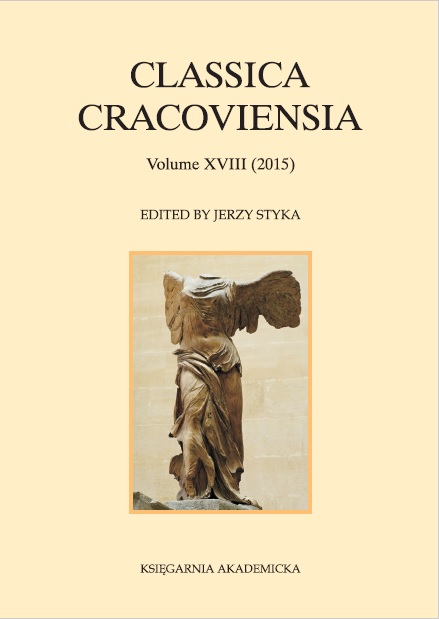Mageiros Sofistie: the learned cook in Athenaeus’ Deipnosophistaied the ancients.
Mageiros Sofistie: the learned cook in Athenaeus’ Deipnosophistaied the ancients.
Author(s): Magdalena StuligroszSubject(s): Social Sciences, Language and Literature Studies, Sociology, Sociology of Culture
Published by: KSIĘGARNIA AKADEMICKA Sp. z o.o.
Keywords: cook; philosopher; parody; Athenaeus; Epicurus; Middle and New Comedy; culinary art; sophist; quadrivium; canon of sciences
Summary/Abstract: Within the category of “cultural humour” applied by Athenaeus in his Deipnosophistai, a special place is assigned to the speeches of stock mageiroi, who seek to obtain theoretical knowledge in various disciplines and to apply it to culinary art. By drawing on fragments from Middle and New Comedy of the 4th century BC, Athenaeus creates a specific “canon” of sciences and of “high” arts, which the cook, who pretends to the title of a sage or a philosopher, has to study, consisting of philosophy, geometry, arithmetic, medicine, music, astronomy, architecture and military strategy. The way the author of Deipnosophistai casts the mageiros as an intellectual can be read as a play on the definition of a sophist. The learned cook, who appears to be a product of the sophistic model of education, based on the mathematical quadrivium introduced by Plato, resembles Athenaeus’ characters, who practice some of the very same disciplines he has studied.
Journal: Classica Cracoviensia
- Issue Year: 2015
- Issue No: 18
- Page Range: 363-376
- Page Count: 14
- Language: English

